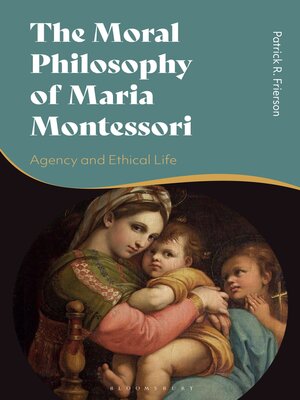
Sign up to save your library
With an OverDrive account, you can save your favorite libraries for at-a-glance information about availability. Find out more about OverDrive accounts.
Find this title in Libby, the library reading app by OverDrive.



Search for a digital library with this title
Title found at these libraries:
| Loading... |
In the first scholarly exposition of Maria Montessori's moral philosophy, Patrick R. Frierson presents an empirically-grounded ethics that takes its start from our tendency to strive for excellence and emphasizes mutual respect, social solidarity, and love.
Laying out a compelling, Montessorian approach to ethical life, Frierson constructs an account of human agency based on children, who when attentively at work on self-chosen tasks, have agency worthy of respect. Through this interpretation of children's agency, he introduces the core concept of Montessorian "character": in Montessori's ethics, character provides the ultimate value worthy of direct respect, and those with character have a natural tendency to respect others. Character is enhanced through corporate forms of agency that Montessori calls "social solidarity."
Weaving this educationalist's ethics with theory from Nietzsche, Aristotle, Kant, Hegel, and Marx, Frierson places Montessori in the context of the history of philosophy. His study effectively unites philosophy and education, showing how human ethical life can be enhanced through a moral theory based on the respectful attention to the lived agency of young children.
Laying out a compelling, Montessorian approach to ethical life, Frierson constructs an account of human agency based on children, who when attentively at work on self-chosen tasks, have agency worthy of respect. Through this interpretation of children's agency, he introduces the core concept of Montessorian "character": in Montessori's ethics, character provides the ultimate value worthy of direct respect, and those with character have a natural tendency to respect others. Character is enhanced through corporate forms of agency that Montessori calls "social solidarity."
Weaving this educationalist's ethics with theory from Nietzsche, Aristotle, Kant, Hegel, and Marx, Frierson places Montessori in the context of the history of philosophy. His study effectively unites philosophy and education, showing how human ethical life can be enhanced through a moral theory based on the respectful attention to the lived agency of young children.







